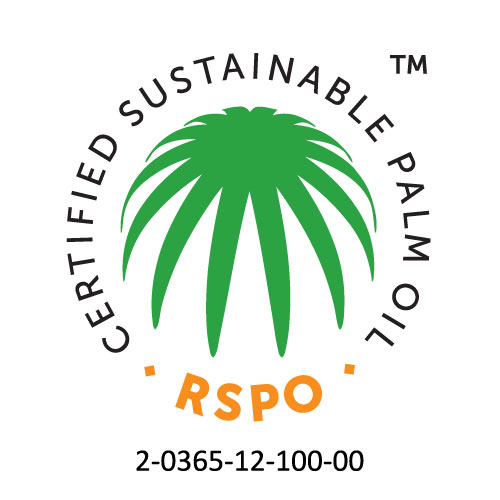ISF Sustainability Policy
Our Commitment to Sustainable Productions and Responsible Sourcing

ISF is committed to the sustainable production and responsible sourcing of palm oil in our supply chain by applying the three pillars of sustainability – environmental protection, social development, and economic development to our operations. Our Sustainability Policy was launched in December 2017 corresponding to our No Deforestation, No Peat, and No Exploitation (NDPE) Policy commitments, and incorporates major sustainable elements with a focus on traceability, certification, stakeholder collaborations, and ethical conduct.
Our policy is updated according to the latest developments surrounding the above NDPE elements and is applied to all ISF-owned facilities, operations, and our third-party suppliers. We also share our NDPE Policy Implementation Targets and Progress, consistent with our value of being transparent in our business operations to our stakeholders.
ISF’s Sustainability Policy

Our Commitment to Certified Sustainable Palm Oil
At ISF, sustainability is at the heart of what we do, and we are committed to contributing to a more responsible and transparent palm oil sector. Since becoming a member of the Roundtable on Sustainable Palm Oil (RSPO) in 2004, ISF obtained its first Supply Chain Certification in 2010 and has been committed to advancing the responsible sourcing and production of certified sustainable palm oil (CSPO).
Our involvement with the RSPO aligns with our core values of protecting the environment and ensuring ethical practices throughout our supply chain. By actively supporting RSPO’s mission through our membership, we strive to drive positive change in the palm oil industry, promoting sustainability, transparency, and the responsible use of natural resources.


Policy Action Plan and Progress
ISF’s Sustainability Policy and its implementation scope are largely based on the components of the NDPE policy and pave the way for a long-term sustainable future if achieved successfully. We update our Sustainability Timebound Action Plan quarterly to monitor our advancement toward achieving a deforestation-free supply chain. Our action plan targets and progress cover the scope of our policy and include all other sustainability-related commitments within our supply chain.
Overview of NDPE Policy and additional supporting commitments from existing policies:
- Sustainability Policy
- Supplier Code of Conduct
- Environmental Policy
- Occupational Health & Safety Policy
- Quality Policy
- Ethical Policy
- Food Safety Management Policy
- Corporate Sustainability Initiatives (CSI)
ISF’s Sustainability Timebound Action Plan
Download PDFEnvironment
- No Clearing of HCS/HCV areas for new plantings
- No new development on peatland
- No use of fire in land preparation and no burning of waste
- Prevent pollution, reduce waste and optimize consumption of resources
Human Rights
- No exploitation of indigenous peoples’ and local communities rights and uphold FPIC principles
- Fair and equal treatment without discrimination
- Freedom of association/collective bargaining
- No illegal, forced, bonded or child labour
- No harassment, threats, abuse or intimidation
Labour and Health & Safety
- Adhere to responsible recruitment practices for all labour
- Prohibit use of WHO Class 1A and 1B chemicals
- Provide safe and invest in employees
- Continuously improve to prevent injuries and minimize accidents
- Implement an OSH management programme
Social
- Support smallholder inclusion in sustainable supply chains
Governance
- No corruption/uphold ethical standards
- Comply with all applicable and relevant national laws
- Engage and verify suppliers against sustainability commitments
- Implementation of principles of the Ethical Trading initiative Base Code
Food Safety & Quality
- Safety and hygienic, high quality products
- Maintain and continually improve quality management
Cross-cutting commitments
- Build traceable and sustainable palm oil supply chain
- Support sustainability certification schemes
- Ensure transparency and open communication with stakeholders
- Provide an effective grievance mechanism accessible to stakeholders
- Comply with all applicable international, national and local laws and regulations
- Carry out corporate sustainability initiatives
Supplier Code of Conduct

Published in 2017, ISF’s Supplier Code of Conduct defines the basic requirements that our suppliers must adhere to and implement throughout their business, including full compliance with applicable laws, environmental, and social and corporate governance standards.
Along with our Sustainability Policy, the Supplier Code of Conduct is updated in 2021 consistent with the latest components required in the NDPE policy.
Components of the ISF Supplier Code of Conduct
- Legal Compliance
- Environment
- Human Rights and Labour
- Health and Safety
- Food Safety, Quality, and Traceability
- Anti-corruption
- Conflict of Interest
- Fair Competition
- Proprietary Information and Confidential Information
- Data Protection
- Grievance Management
- Supplier Engagement and Verification



